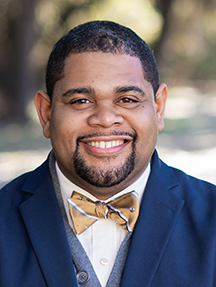• Terrence Wilson, J.D. • Knowledge is Power • September 2, 2021 •


Whitewashing History
Several policymakers have pursued laws and regulations that would gloss over the full impact that systemic oppression has had in the history of the United States and the world. Many of these efforts have singled out The 1619 Project, which highlights the ongoing impact of slavery and the oppression of Black people.
Measures have been introduced at the federal level (SB 2035/HR 3810), introduced in state legislatures in Arkansas (HB 1231) and South Carolina (HB 4343), enacted in Texas (HB 3979), and enacted by the state school board in Florida. Texas is considering a second measure this week (SB3).
Censoring Conversation about Systemic Oppression
Several of the measures seek to limit conversation about so-called “divisive concepts,” using nearly verbatim language from model legislation offered by conservative think tanks. These measures have been introduced under the guise of preventing critical race theory from being taught, but, in actuality, several such proposals neither mention the term nor reflect an understanding of it.
>Measures targeting the open discussion of systems of oppression have been introduced in state legislatures in Louisiana (HB 564), Mississippi (SR 56) and North Carolina (HB 324), enacted in Tennessee (Public Act 493), as well as enacted by state boards of education in Alabama and Georgia.
Using Executive Power for Ideological Gain
Policymakers across the South also have turned to the executive branch of government to attempt to invalidate teachings and training that highlight diversity, equity and inclusion under the guise of an attack on critical race theory.
Twenty state attorneys general from Alabama, Arkansas, Georgia, Louisiana, Mississippi, South Carolina, and Texas sent a letter to U.S. Secretary of Education Miguel Cardona that urges him to advocate for censorship of content and ideas. State legislatures in Arkansas and Texas have asked their respective attorneys general to rule on the legality of these efforts.
Instilling Fear
Taken together, these efforts illustrate a coordinated effort to use any and all levels of government to limit the concepts that can be taught around racism, sexism and other systems of oppression. These strategies rely on creating fear.
In Tennessee, schools or districts may be defunded (up to 10% of state funds or $5 million annually). If laws like those proposed in Alabama pass, teachers may be disciplined or fired.
Distracting from Key Policy Priorities
These efforts will undoubtedly hurt all students, leaving them ill-prepared to understand the world, and they distract from pressing health, safety and education priorities.
[©2021, IDRA. This article originally appeared in the September 2, 2021, edition of Knowledge is Power by the Intercultural Development Research Association. Permission to reproduce this article is granted provided the article is reprinted in its entirety and proper credit is given to IDRA and the author.]


